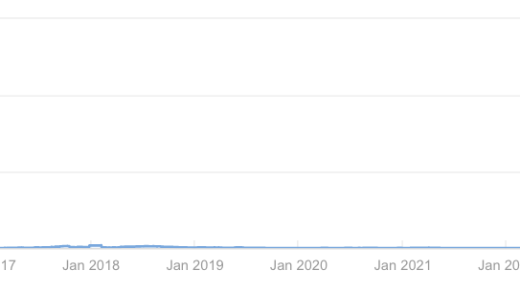Florida men are seemingly involved in so many strange happenings involving pythons, alligators and restaurant break-ins that when a parody “Florida Man” Twitter account surfaced back in 2013, it became an immediate sensation.
But a five-day-old GoFundMe fundraiser for Donald Trump’s border wall by a Florida man is starting to look anything like a joke. With ambitions to raise a brow-raising $1 billion, it has already secured nearly $13 million from more than 200,000 individuals since launching on Sunday. And GoFundMe campaigns do not have deadlines.
Where that mounting pile of money will land is the looming question. The man behind the campaign, Brian Kolfage, formerly ran conspiracy-theory websites, along with a Facebook page called Right Wing News that was shut down by Facebook in October.
Kolfage, who is also a U.S. veteran who served in Iraq and lost both legs and one arm, talks at some length about his public service on his GoFundMe page. He also states that he has been on Fox News “many times, [so] you can see I’m credible and a real person.” He meanwhile mentions nothing about his media ventures, telling NBC News yesterday that he doesn’t “want it to be a distraction” to potential donors.
More concerning are some of the claims that Kolfage makes at the page, including that 100 percent of the donations will go to the Trump Wall, when there is no mechanism that would allow such a transfer of funds as of this moment. Congress would have to enact a statute to permit it. Writes Kolfage: “How will we get the funds to the right place? We have contacted the Trump Administration to secure a point of contact where all the funds will go upon completion. When we get this information secured, we will update. We have many very high level contacts already helping.”
The page also tells visitors that the U.S. government has accepted large donations from private investors in the past, linking to a 2012 story about billionaire David Rubenstein, co-founder of the Carlyle Group, who donated $7.5 million to repair cracks near the top of the Washington Monument. What the GoFundMe campaign does not make clear is that Congress was behind that particular initiative, allocating $7.5 million to the repairs on the condition that private donations would match that same amount.
In fact, numerous government agencies accept matching gifts from private donors, including the National Endowment for the Humanities. But the idea is to double the impact of government-led initiatives through those contributions, not to invite donors to dictate the initiatives themselves. As U.S. Representative Bob Goodlatte, a Republican from Virginia and the chair of the House Judiciary Committee, told the New York Post yesterday, “Obviously, we can’t let citizens raise money and say, ‘The government will spend my money on this purpose.’ ”
Given that roughly one-third of Americans of voting age identify as Republicans, two-thirds of whom appear to support Trump’s push for a border wall, Kolfage’s $1 billion target doesn’t sound entirely outlandish. The campaign has already landed one $50,000 donation, and if it gains further momentum, others may come to view it as a straightforward way to flex their financial and political muscle.
Indeed, at some point, the campaign, if it continues to gain momentum, could begin to raise questions, beyond whether or not it’s smart for people to be sending their money to Kolfage. Specifically, though it’s against the law for the government to accept donations with strings attached, might we see a day when the U.S. citizens are able to wield as much power as lobbying groups by coming together on financial platforms like GoFundMe? Though no amount of money committed to Kolfage’s GoFundMe campaign would obligate the government to build a border wall, already Republican lawmakers have introduced bills seeking to allow the Treasury Department to accept public donations for the purpose of funding one. The bills are unlikely to go anywhere once Democrats take control of the House next month, but they could pave the path for future legislation.
In the meantime, what happens to Kolfage and the many millions of dollars he has raised will be interesting to watch. As a Post report yesterday noted, GoFundMe’s terms of service prohibit “not using funds for their stated purpose,” meaning that if the government can’t find a way to work with Kolfage, he may have to reimburse donors. Or, at least, GoFundMe — which hasn’t responded to our requests for comment — may be saddled with doing so.
It wouldn’t be the first time the platform has had to return money to a campaign’s donors.
Just last month, a New Jersey couple and a homeless man were accused of making up a story that raised more than $400,000 through GoFundMe, money that they reportedly spent on a car, trips, high-end handbags and casinos. The couple and the man now face charges of second-degree theft by deception and conspiracy to commit theft by deception. GoFundMe has said it will fully reimburse the campaign’s 14,000 donors.
Interestingly, GoFundMe has never revealed how much it has raised from its own investors, which include Iconiq, Stripes Group, Accel, TCV, Greylock and Meritech Capital. It raised its first outside round of capital four years ago. The company was founded in 2010.
Pictured above: The strip mall in Castle Rock, Colorado, where donors to Kolfage’s GoFundMe campaign are being asked to send their checks.









